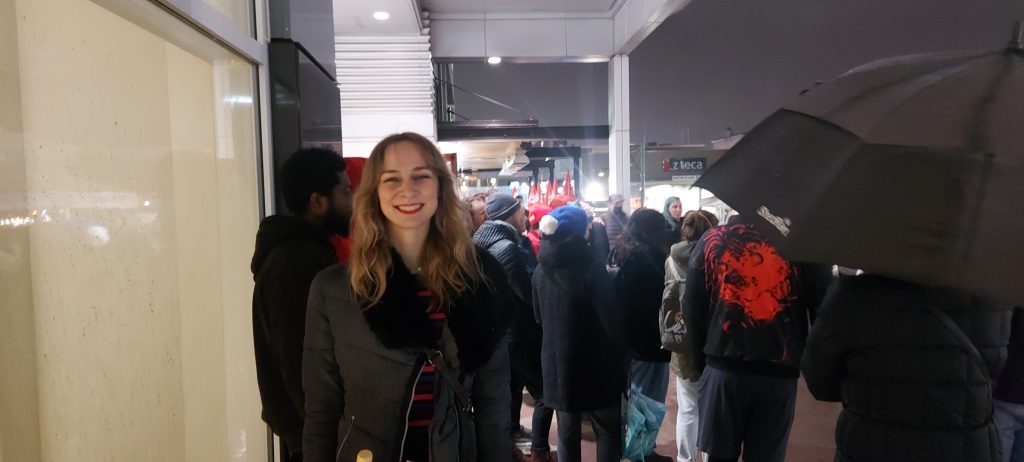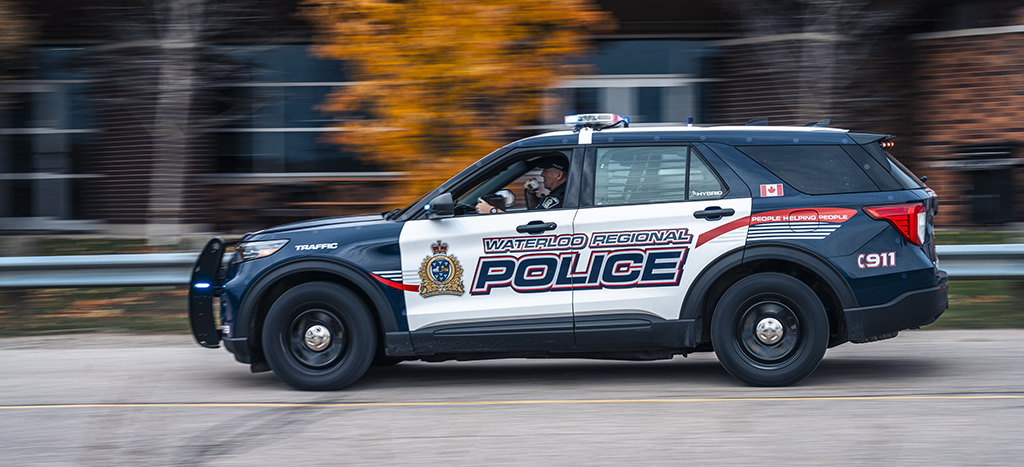Vigil held in Waterloo to honour Transgender Day of Remembrance

Posted Nov 21, 2024 07:13:26 AM.
Last Updated Nov 21, 2024 10:16:03 AM.
Rain couldn’t spoil the plans of a large group of allies who got together at Waterloo Public Square on Nov. 20 to honour the memory of transgender people, family or friends they lost.
They gathered close to hear speakers and listen to stories. One attendee spoke about a friend who passed away from anti-transgender prejudice saying, “I just miss them.”
November 20 is recognized internationally as the Transgender Day of Remembrance in recognition of the 1998 murder of a highly notable member of the trans community in her hometown of Boston, MA. Rita Hester worked on education around transgender issues.
Hester was found in late November stabbed 20 times in her apartment where she then died in hospital from cardiac arrest.
One year later, a vigil was coordinated to honour not only Hester but all who were lost to anti-transgender violence, like the one in Waterloo on Wednesday evening.
The event was held by Spectrum Waterloo Region at the Rainbow Community Space, which was donated by the City of Waterloo.
“People feel emboldened and trans people, like myself, are under a lot more scrutiny than we used to be,” Brooklin Wallis, Director of Spectrum, said.
The recent election results in the U.S. have also sparked some concerns and fear. Wallis mentioned president-elect Donald Trump has spoken openly about banning gender-affirming care, which they fear could leak over the border into Canadian politics.
“Trans people are a small minority and we really need the support of the larger, queer community and the larger LGBTQ+ community and just the whole community in general.”
At the vigil was Amy Smoke, co-director of Willow River Centre, co-founder of Landback camp and a teacher at the University of Waterloo, who is a two-spirit Indigiqueer, said fear is being felt and the need to hold vigils is important.
“All the different sexual gender expressions and identities on Northern Turtle Island have been here before colonization. I think it’s important to remember that there are so many ways to express yourself,” said Smoke.
Turtle Island is the name many Indigenous Peoples and activists use to describe North America.
“We exist, we have always existed – I think it’s time we take out that euro-centric homophobia and transphobia, so we learn that we are more alike than we are different.”
Wallis added she isn’t optimistic but remains hopeful for the transgender community.








